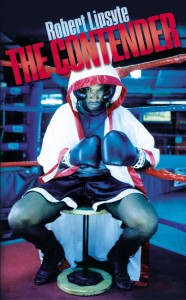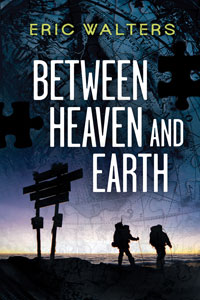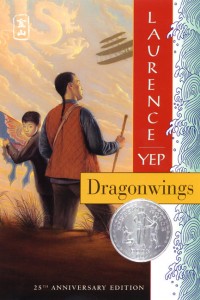Thought and memory are part of what makes us human. Most of us want to be remembered; we realize our actions today impact how we will be remembered tomorrow. Reaching such an understanding is part of growing up. So is the idealism and passion to go out and make a difference, to change the world and make it a better place, to dream up great feats and ways to salvage or mend the society inherited from our forebears. This desire to leave a legacy remains within us as we live our lives, becoming urgent again in the winter of our years when we realize we are running out of time.
The theme of legacy is often tackled in YA literature, concerning both young and old. From the perspective of young adults, the theme may be expressed in teenagers figuring out their own lives, or in fulfilling the wishes of elderly friends or relatives, or in working to ensure that the memory of a cherished person lives on. From the viewpoint of the old and wise, the idea of legacy may arise as characters face the threat of being erased from history, or work to ensure that history is not forgotten and thus not repeated, or attempt to make their own contribution to humanity, to make the world a better place.
Literature on the Theme
The books reviewed here are representative of the theme of Legacy; this is not a comprehensive list. Novels are listed alphabetically by authors’ last names.
*
 Postcards from No Man’s Land, by Aidan Chambers
Postcards from No Man’s Land, by Aidan Chambers
Red Fox, 1999; 336 pages
The narrative of Postcards from No Man’s Land is divided between the present-day voice of Jacob, a young man visiting the Netherlands on behalf of his grandmother, and the memoirs of Geertrui, the elderly woman he is there to visit. Geertrui remembers the days she knew Jacob’s grandfather and namesake in his last days during the trials and tribulations of World War II.
The terminally ill Geertrui takes great pains to have her teenage grandson, Daan, type up her memoirs and help her to edit them. There is an urgency because she has scheduled her appointment to be euthanized, and she wants to ensure that Jacob, the grandson and namesake of her true love, gets to hear the story and learn the truth about his long-deceased grandfather and this Dutch family.
*
 The Chocolate War, by Robert Cormier
The Chocolate War, by Robert Cormier
Alfred A. Knopf, 1974; 253 pages
The Chocolate War follows a diverse group of teenage boys at a Catholic all-boys school, including the activities of a gang of bullies and various misadventures. The sadistic Brother Leon is hated above and beyond the usual for a teacher, and his cruel treatment prevents anyone from speaking up about it. That is, until one young man has the courage to defy the system.
Brother Leon seeks to gain fame (and a legacy) by having the boys sell more than twice as many chocolates as they did the previous year in the annual drive, and this time the chocolates are fancier and more expensive. Such chocolates are destined to fetch higher prices and thus put donation levels off the charts, making Leon a legend. In addition, he has formed an alliance with the school gang, a group heretofore unspoken of and never officially acknowledged by the staff.
Jerry, one of the boys but not yet one of the gang, is given an initiation assignment of refusing to do his duty and sell chocolates for a time. He goes down in school history not only as the first to refuse the school’s expectations, but also for eventually defying the wishes of the gang of bullies that rules the school.
*
 The Contender, by Robert Lipsyte
The Contender, by Robert Lipsyte
Harper & Row, 1967; 182 pages
This fast-paced novel follows the adventures of Alfred Brooks, a seventeen-year-old high school dropout from Harlem, as he avoids gangs, trains to be a boxer, tests his mettle, and finds out when it is time to retire. Along the way, Alfred makes and loses friends, faces difficult life decisions, and learns how to dream for the future.
Bill Witherspoon, a former boxer but now a schoolteacher, shows Alfred by example that it really is possible for a non-white boy from Harlem to achieve his dreams, to be a successful boxer and to get an education too. Once Alfred has completed what he has set out to do in the boxing ring, he begins dreaming of finishing high school and going to college. He knows his legacy does not have to be that of a drug-addicted, break-and-enter thief like his friend James, but he is able to set his sights higher than he has ever thought possible.
*
 Z is for Zachariah, by Robert C. O’Brien
Z is for Zachariah, by Robert C. O’Brien
Simon Pulse, 1975; 149 pages
In this apocalyptic survival tale, sixteen-year-old Ann Burden discovers she is not, in fact, the last living human being on Earth when a stranger in a special radiation-proof suit invades her peaceful valley. Ann begins dreaming of getting married and starting a family with Mr. Loomis, despite the fact that he is much older than she is. She overcomes her reticence to approach the stranger, whom she believes is the last man on earth, by accepting it as her duty to carry on the human race.
Before the stranger arrived, Ann spent a great deal of time pondering what would happen if she were to fall ill and become unable to care for the last living specimens of certain animals or plants, or how, if she should die, the beauty of life would die with her. When Mr. Loomis invades and starts butting into everything, Ann is forced to act and must choose whether to save all sorts of things that she would not have made the effort to save on her own.
*
 Between Heaven and Earth, by Eric Walters
Between Heaven and Earth, by Eric Walters
Orca Book Publishers, 2012; 245 pages
Seventeen-year-old DJ is the eldest of his deceased grandfather’s grandsons. When the will is read, the family discovers there is a seventh grandson no one else knew about, and each grandson is given a separate mission to accomplish. Eric is sent to climb Mount Kilimanjaro in Tanzania and scatter his grandfather’s ashes from the top. Starting off with full confidence, DJ soon finds that success will require all of his strength and endurance, and that he must learn to rely on others. Tricked into demanding Sarah, the teenage daughter of his guide, be hired as one of the porters, DJ finds himself isolated from the disapproving locals, not only because it is Sarah’s first time on the mountain and she has not yet proven herself, but mainly because she is a woman. DJ is left only with Sarah and Doris, an elderly woman, for traveling companions.
DJ knows that transporting human remains across national borders is illegal, and the consequences of doing so in a country like Tanzania may be unthinkable (44). But he inherited his grandfather’s cane, which has a place to conceal the ashes, so DJ risks bringing his grandfather’s remains to the mountain his grandfather so longed to see again in life. Since death had prevented him, DJ is to take his grandfather’s place and conquer the mountain on his behalf. The personal journey DJ takes to reach his goal is far more difficult than anticipated. However, he persists, knowing it is his grandfather’s legacy at stake.
*
 Dragonwings, by Laurence Yep
Dragonwings, by Laurence Yep
HarperCollins, 1975; 248 pages
Dragonwings tells the adventures of Moon Shadow, a young Tang Chinese boy who emigrates from China to San Francisco at the turn of the 20th century. He is met by his father, Windrider, whom he has never met, as well as uncles and other relatives. He befriends Mrs. Whitlaw, the elderly white landlady, and her young niece, Robin, and helps his father build a flying machine despite the odds against them. Together they face racism, family opposition, earthquake, fire, robbery, and poverty.
Windrider is determined to build a working flying machine, to prove that he is in fact a dragon. Moon Shadow is convinced this is true, and sticks by his father no matter what the circumstances. In the end, with some assistance from the Wright brothers, his tenacity in the face of ongoing heartaches is finally rewarded, and Windrider successfully flies for several minutes with a crowd of witnesses, ensuring that his legacy is secure.
*
 The Pigman, by Paul Zindel
The Pigman, by Paul Zindel
Harper & Row, 1968; 182 pages
The Pigman is written from the points of view of John and Lorraine, high school sophomores re-telling the story of their brief friendship with an old man. They befriend Mr. Pignati after calling his home as a practical joke. Surprised by his kindness and generosity towards them, and without intending harm, they find themselves taking advantage of him and possibly causing his death.
John and Lorraine take turns writing this “memorial epic” of their experiences with Mr. Pignati because they feel the Pigman deserves to have his story heard—they want to cherish his memory, hold onto his legacy. By the end of the book, the death of Mr. Pignati has John and Lorraine contemplating their own mortality and legacies, as well as the Pigman’s. The teenagers conclude that “Our life would be what we made of it—nothing more, nothing less” (182).
*
Other themes: Collective Memory // Mortality // Learning, Knowledge and Wisdom // Unconditional Love
